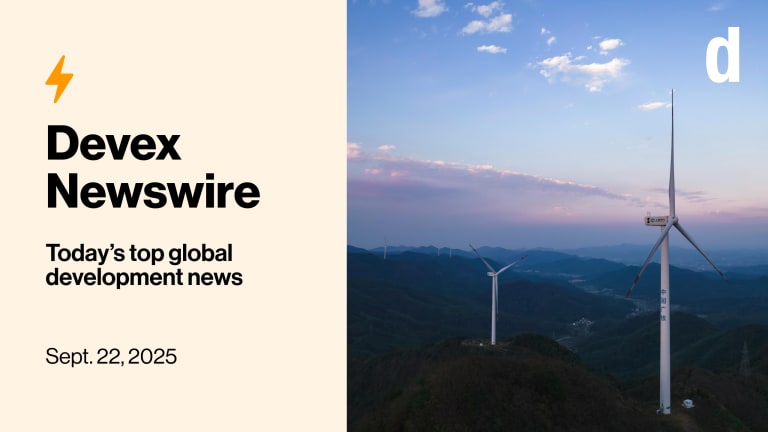The Norwegian Agency for Development Cooperation hosted its annual development gathering on climate and biodiversity yesterday. But all did not go according to plan when it was severely scolded for “moral and economic madness.”
Also in today’s edition: We look at how the Medicines Patent Pool will accelerate access to medicine in lower-income nations, and a few details on Australia’s development policy.
Join us: On Feb. 3 at 6 p.m. EAT (4 p.m. WAT/10 a.m. ET), we’ll be hosting a Twitter Spaces conversation on what are the top priorities for the new Africa CDC chief.
Printing articles to share with others is a breach of our terms and conditions and copyright policy. Please use the sharing options on the left side of the article. Devex Pro members may share up to 10 articles per month using the Pro share tool ( ).








